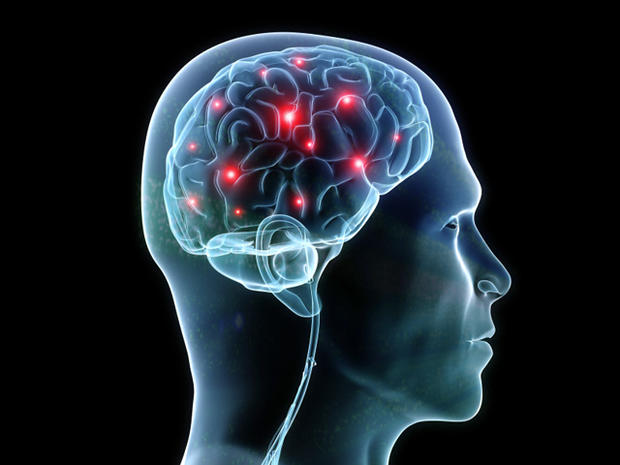Autism tied too many brain cells: Will finding bring better diagnosis?
(CBS) A ghoulish new study has linked autism to an overgrowth of cells in the brain region responsible for "high order" functions, including problem-solving, communication, and social and emotional development.
PICTURES - Is it autism? Facial features that show disorder
For the small study, scientists examined the brains of seven autistic children and six children without autism, all of whom had died by drowning or other causes between the ages of two and 16. The researchers found that the autistic kids had 67 percent more brain cells (neurons) in the prefrontal cortex. That's the brain region just behind the forehead.
In addition to more neurons - about 1.9 billion vs. about 1.2 billion for the control children - the brains of the autistic children weighed more.
What does it all mean?
Study author Dr. Eric Courchesne, director of the National Institute of Health-University of California-San Diego School of Medicine Autism Center of Excellence, told WebMD that the research was "a small study with a large impact. The extra neurons mean "a huge increase in potential connections and, therefore, a potential for 'miswiring' which would lead to abnormal function," he told HealthDay.
The study - published in the Nov. 9 issue of the Journal of the American Medical Association - seems to go against the belief that autism is the result of vaccines administered in early childhood. Dr. Lizbeth Romanski, of the University of Rochester Medical Center in New York, told HealthDay that neurons are created during the second trimester. "That is when these neurons are being born," she said. Dr. Romanski was not involved in the study.
Because the extra neurons can be measured by a brain scan, the new study could point to new ways to clarify a diagnosis of autism, according to WebMD. Currently, the condition is diagnosed on the basis of symptoms and behaviors, not blood tests, brain scans, or other more tangible indicators.
In the meantime, concerned parents should be on the lookout for worrisome symptoms - problems with speech, in particular.
"The hallmark of autism is language delay," Los Angeles-based pediatrician Dr. Y. Jane Tavyev Asher told WebMD. "So if there is early language delay, shoot first and ask questions later. It's better to have started a little speech therapy and find out it's not autism than to go from person to person being evaluated before starting speech."
In addition to communication problems, autism can affect social interaction, intelligence, and behavior. It affects about one of every 110 children.
The CDC has more on autism spectrum disorders.

